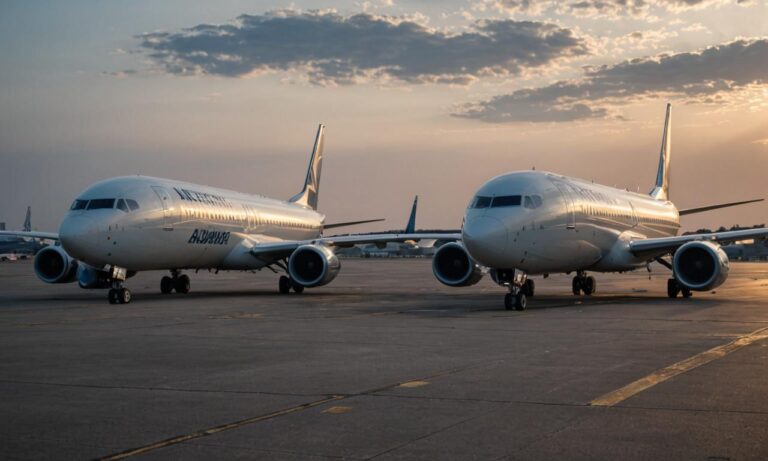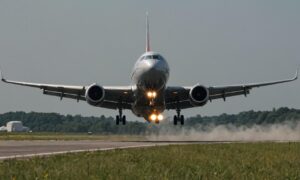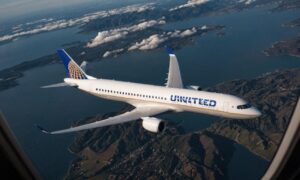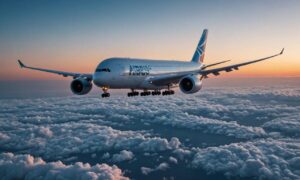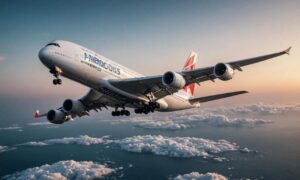When it comes to comparing the safety records of Airbus and Boeing aircraft, it’s essential to delve into various factors that contribute to the overall safety of these two leading aircraft manufacturers. Safety is paramount in aviation, and both companies have strived to maintain high standards in their respective aircraft designs, manufacturing processes, and operational procedures.
History of Airbus and Boeing
Airbus and Boeing, two giants in the aviation industry, have a rich history of innovation and competition. Airbus, a European consortium, was established in the 1970s, while Boeing, an American company, has been a key player in aviation since the early 20th century. Both companies have contributed significantly to the advancement of aviation technology and have produced a wide range of commercial and military aircraft.
Comparing Safety Records
Assessing the safety of Airbus and Boeing aircraft involves analyzing various aspects, including accident rates, incident reports, and regulatory compliance. While both manufacturers have experienced incidents and accidents over the years, it’s essential to look at the broader context and consider the number of aircraft in operation.
Boeing has faced significant scrutiny following accidents involving its 737 MAX aircraft, which led to temporary groundings and intense regulatory scrutiny. These incidents raised questions about Boeing’s safety protocols and the design of its aircraft systems.
On the other hand, Airbus has also encountered challenges, but its safety record has generally been strong. The Airbus A320 family, for example, has a commendable safety record and is widely regarded as a reliable and efficient aircraft.
Technology and Innovation
Both Airbus and Boeing incorporate state-of-the-art technology and safety features into their aircraft designs. From advanced avionics systems to enhanced materials and construction techniques, these manufacturers continuously strive to improve the safety and performance of their products.
Airbus has introduced innovations such as fly-by-wire technology, which enhances control systems and improves aircraft handling. Similarly, Boeing has implemented advanced automation and safety features to enhance the overall safety of its aircraft.
Regulatory Oversight
Regulatory agencies play a crucial role in ensuring the safety of aircraft produced by Airbus and Boeing. Organizations such as the Federal Aviation Administration (FAA) in the United States and the European Union Aviation Safety Agency (EASA) in Europe set stringent standards and regulations for aircraft certification and operation.
Both Airbus and Boeing must adhere to rigorous certification processes and comply with safety regulations imposed by regulatory authorities worldwide. These measures help maintain high safety standards across the aviation industry.
In conclusion, the question of whether Airbus is safer than Boeing or vice versa is complex and multifaceted. Both manufacturers have made significant strides in enhancing the safety of their aircraft through innovation, technology, and regulatory compliance. While each company has faced its share of challenges, their commitment to safety remains unwavering.
Ultimately, passengers can have confidence in the safety of aircraft produced by both Airbus and Boeing, thanks to rigorous safety standards and ongoing efforts to improve aviation safety across the industry.
Environmental Impact
Examining the environmental impact of Airbus and Boeing aircraft is becoming increasingly important in discussions about aviation. Both companies are under pressure to develop more fuel-efficient planes and reduce carbon emissions to address concerns about climate change.
Airbus and Boeing are investing in research and development to create aircraft with lower fuel consumption and emissions. This includes exploring alternative fuels, improving engine efficiency, and optimizing aerodynamics to minimize environmental impact.
Carbon Footprint
The carbon footprint of aircraft manufactured by Airbus and Boeing is a significant consideration. Airlines and regulators are looking for ways to reduce the environmental impact of air travel, including measures to offset carbon emissions and invest in sustainable aviation technologies.
Reducing the carbon footprint of aviation requires collaboration among manufacturers, airlines, governments, and environmental organizations to develop and implement effective strategies for mitigating the environmental impact of air travel.
Frequently Asked Questions
| Question | Answer |
|---|---|
| Which manufacturer has a better safety record? | Both Airbus and Boeing have strong safety records overall, with occasional incidents. Safety depends on various factors beyond just the manufacturer, including maintenance, pilot training, and regulatory oversight. |
| What measures are Airbus and Boeing taking to improve safety? | Airbus and Boeing continually invest in research, technology, and training to enhance the safety of their aircraft. They collaborate with regulatory agencies and industry partners to identify and address potential safety concerns. |
| How do Airbus and Boeing address environmental concerns? | Both companies are developing more fuel-efficient aircraft and exploring sustainable aviation technologies to reduce their environmental impact. They work with stakeholders to promote environmentally responsible practices within the aviation industry. |

